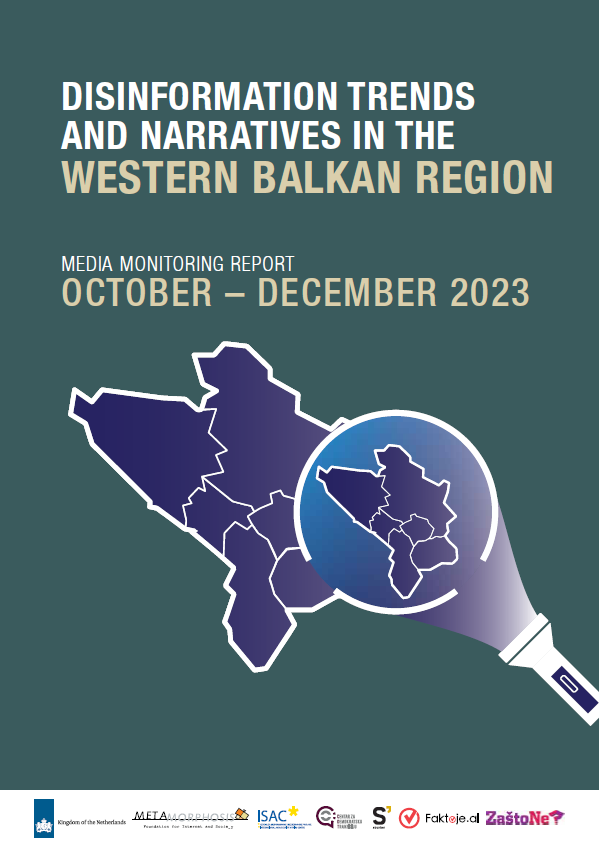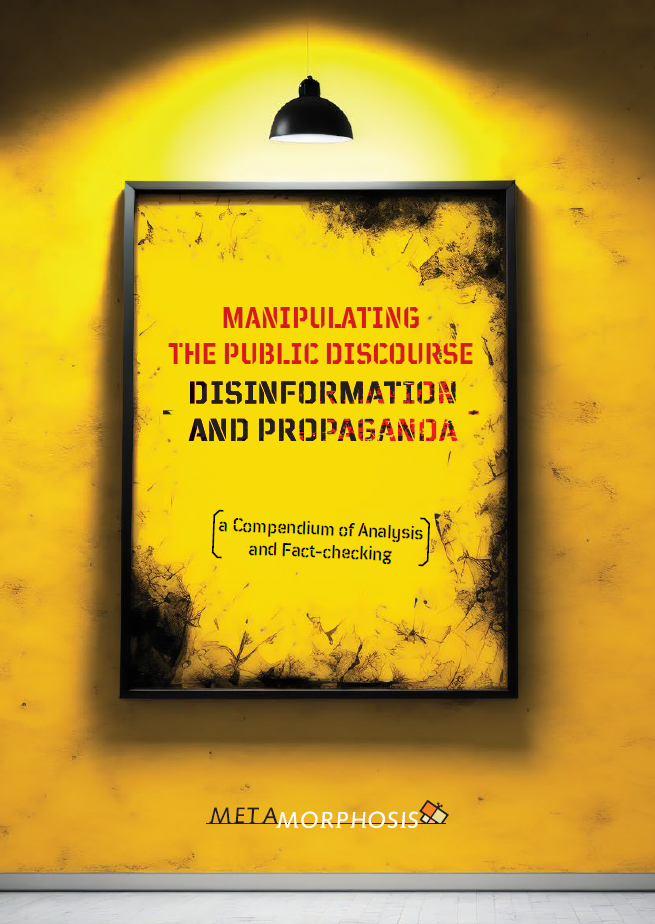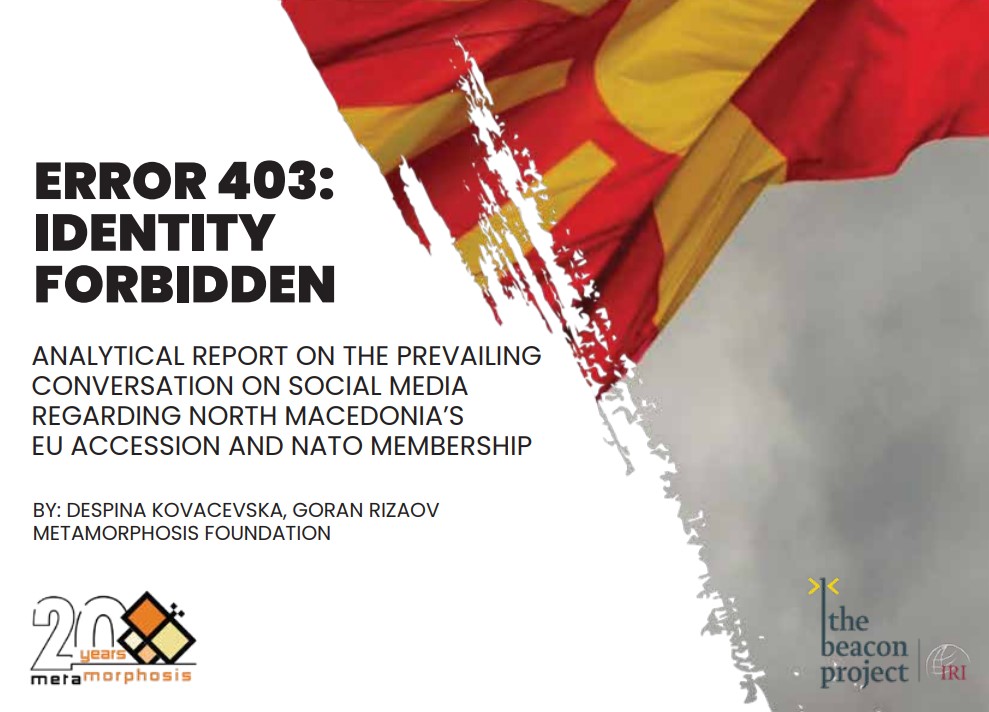The Comic book “Under surveillance” is produced as an information and awareness tool for young adults.
Synopsis: In an unspecified European city, a group of young people works, studies, travels, publishes on forums and blogs, exchanges on social networks and meets at concerts… A “difficult” situation in the life of a young photo-journalist and his friends’ mobilization to help him out of this situation illustrate the breaches of personal data protection facilitated by the use of new technologies. The comic book underlines the consequences but also possible remedies. A glossary and links to useful websites come with the comic book.
DISINFORMATION TRENDS AND NARRATIVES IN THE WESTERN BALKAN REGION MEDIA MONITORING REPORT FOR THE PERIOD OCTOBER – DECEMBER 2023
During the last quarter of 2023, various external actors continued to target the societies of Western Balkans with disinformation and related manipulation tactics, through a range of influence operations by various authoritarian forces, to hybrid warfare by Russia. This monitoring report presents an overview of key disinformation trends affecting Albania, Bosnia and Herzegovina, Kosovo, Montenegro, […]

Compendium: “Manipulating the Public Discourse: Disinformation and Propaganda”
The compendium, “Manipulating the public discourse: Disinformation and Propaganda,” is an essential compilation for those seeking to understand and navigate the complex landscape of disinformation that has proliferated in recent years. It brings together a diverse array of texts, fact-checking articles, in-depth analyses, and reviews covering 2023. The year was marked by significant global and […]

“Error 403: Identity Forbidden
“Error 403: Identity Forbidden” is an analytical report on the prevailing conversation on social media regarding North Macedonia’s accesion to European Union and NATO membership. Research conducted by Metamorphosis Foundation as part of IRI’s Beacon Project from November 2023 to January 2024 indicates that the issues of integration of North Macedonia in the European Union […]


























